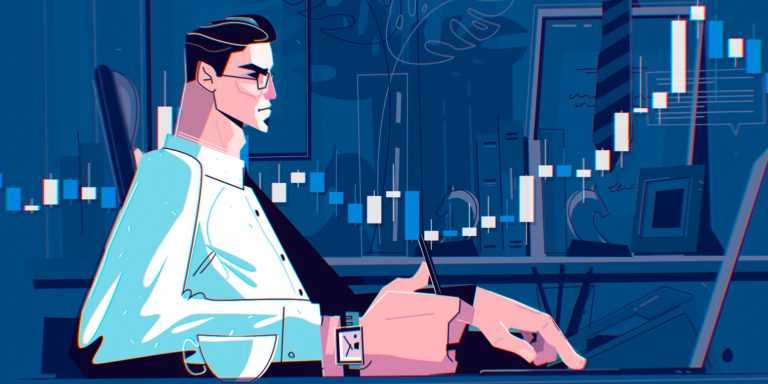No matter what people say, trading is complicated. There is no magic pill that can turn a newcomer into a trading guru in a blink of an eye. And there is no single best strategy that suits everyone. In order to become a trader, people spend years and dedicate a lot of time and effort to their pursuit. And still, many of them fail. Why is trading so complicated and how to get over complexities? Read the article to find the answers.
Changing markets
 Markets are never the same. They are ever-changing and ever evolving, it is a part of their nature. Chances are, you will never witness identical market conditions twice. The reason for this is the sheer number of factors that influence the performance of the assets you trade. The price of an asset is influenced by hundreds if not thousands of different factors. Every time you look at the price chart the conditions are likely to be different. International markets are complex financial systems — hence, the complexity of interacting with them.
Markets are never the same. They are ever-changing and ever evolving, it is a part of their nature. Chances are, you will never witness identical market conditions twice. The reason for this is the sheer number of factors that influence the performance of the assets you trade. The price of an asset is influenced by hundreds if not thousands of different factors. Every time you look at the price chart the conditions are likely to be different. International markets are complex financial systems — hence, the complexity of interacting with them.
How does one address this issue? Despite all the complexities, there are certain techniques that may assist with estimating the future performance of a particular asset. As mentioned previously, markets are not static and market conditions are rarely identical. Yet, there are certain patterns that repeat themselves. Said patterns can be spotted and used in trading. The former might be used as signals that you receive and act upon but, of course, should be double checked for a confirmation.
Human factor
 Human nature plays an important role in trading. No matter whether you consider it to be a drawback or a source of additional opportunities, this is something that simply cannot be denied. After all, it is we, humans, that open and close deals, buy and sell assets from and to each other.
Human nature plays an important role in trading. No matter whether you consider it to be a drawback or a source of additional opportunities, this is something that simply cannot be denied. After all, it is we, humans, that open and close deals, buy and sell assets from and to each other.
How to cope with the human factor when trading any asset on any time frame? There are several ways to do so. As a retail investor, you cannot influence the behavior of other investors, but you can change your own attitude. This is something you have probably already heard of (and heard more than once). All you have to do is eliminate, or rather minimize the human factor in your own trading. For this exact purpose, try to get rid of emotions, both positive and negative, as they can negatively affect your trading performance. Trading according to your trading strategy, not the gut feeling, and you will manage the unnecessary risks associated with human fallacies.
Abundance of information
 We have to admit that at this point the amount of information that tries to explain how markets work has itself become a problem. Oftentimes, it is impossible for a novice trader to navigate himself in the sea of trading-related knowledge. Hence, another degree of complexity.
We have to admit that at this point the amount of information that tries to explain how markets work has itself become a problem. Oftentimes, it is impossible for a novice trader to navigate himself in the sea of trading-related knowledge. Hence, another degree of complexity.
There is so much you can learn about trading and financial markets that it is sometimes easy to get lost. Books, articles, guides — you have to learn a lot before you even grasp the basics of trading. When you move on to a more advanced level, knowledge itself is not enough, as you will require extensive first-hand experience. As if that wasn’t enough, there are countless ways to analyze the market and predict the future price of the asset. All of them require thorough understanding of a particular technical analysis tool.
What is the possible solution to this problem? Focus. Focus on one asset type, one time frame and one trading strategy at a time. It is much easier to get lost when you do not have a clear picture of what you are doing. Different assets are traded differently and require different strategies. Different time frames utilize different types of analysis. Different analysis tools provide different signals. In trading, all of these things matter. Therefore, you might want to choose one in each category and master them first before jumping to something else.
Conclusion
As you can see, overall complex nature of the financial markets is a result of its constituent parts being complex. Today we have covered three of them. It is easier to work with complex systems when you break them down into bite-sized and easily digestible pieces. In this case, it is easier to fight different hurdles one-on-one, and not the system at large.

